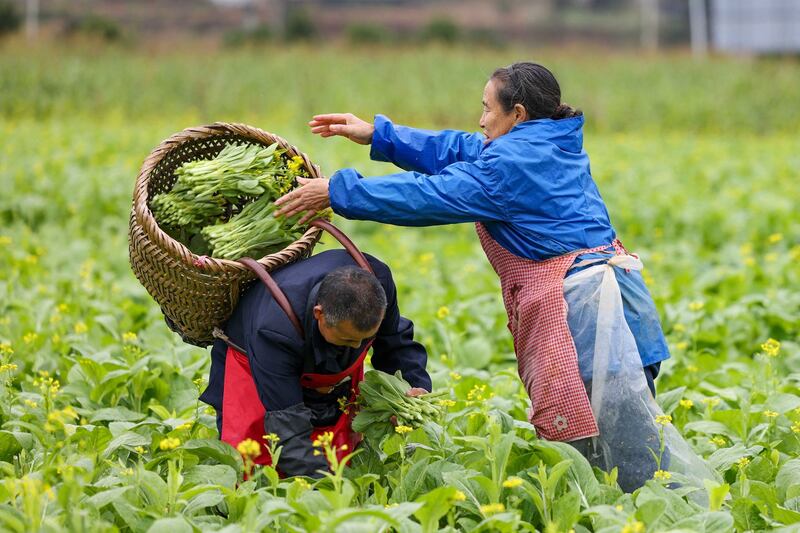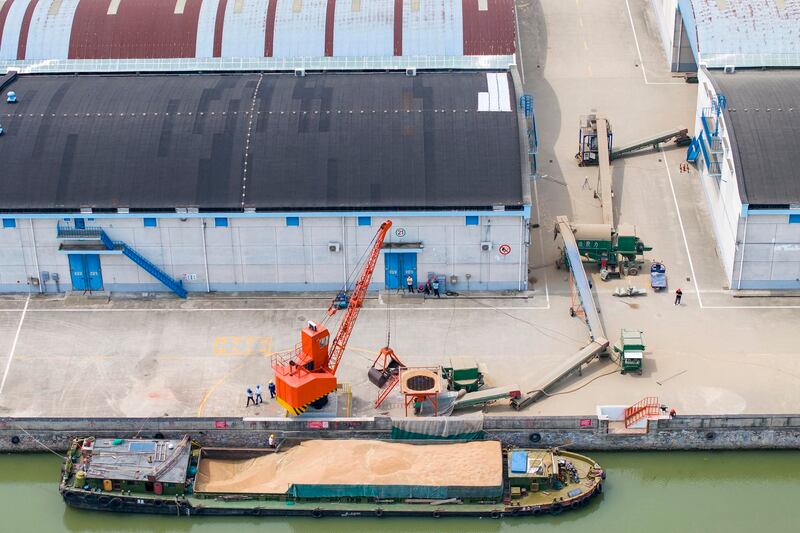China’s State Council has ordered local governments and rural communities to ensure grain production never dips below minimum levels, to “safeguard food security and ensure there is no large-scale relapse into poverty.”
To achieve this, national grain output must remain above 1.3 trillion jin (650 million tons) in 2024, the annual agricultural and rural policy document, known as “Document No. 1,” says.
The Feb. 3 directive also calls on local authorities to learn from ruling Chinese Communist Party leader Xi Jinping’s poverty alleviation project in rural Zhejiang in 2003, by “storing food in the land,” a slogan referring to a system of fallow agricultural land that can be quickly sown with food crops if grain stores are running low.
The paper also calls for “strengthening the leadership of the Chinese Communist Party on work regarding agriculture, rural areas, and farmers,” state news agency Xinhua reported.
Current affairs commentator Guo Min said food security is once more cropping up as a major preoccupation for China’s leadership, citing the large-scale abandonment of agricultural land by farmers in recent years.
He said the fact that this year’s Document No. 1 once more mentions food security shows that securing rural grain production levels remains a big headache for the authorities.

While Xi's government declared in November 2020 that it had eliminated extreme poverty due to the mass and often enforced relocation of younger migrant workers to cities, it has also stepped up its day-to-day controls over farming activities, deploying controversial " agricultural management" enforcement officials to tighten state control over the supply of grain and to facilitate the transfer of rural land away from farmers if needed.
Guo said the mention of “a return to poverty” highlights something that has already happened.
“My understanding of the phrase ‘preventing a large-scale return to poverty’ is that the Chinese people are on the road to extreme poverty, and that this is inevitable,” he said.
"China now doesn't even have the money for the government to take care of its own people," Guo said, in a reference to empty local government coffers in the wake of the three-year zero-COVID policy, and unpaid civil service wages.
Storehouses running low
Yang Haiying, a professor at Japan’s Shizuoka University, said the authorities likely fear food shortages could lead to widespread social unrest.
“Chen Yun, a friend of Deng Xiaoping, the [late] former leader of ... the Communist Party of China, once said that the Chinese people are easy to manage,” Yang said. “As long as they have enough to eat, they will be fine, and won’t rebel.”
“Since Xi Jinping came to power, they have [supposedly] solved the problem of poverty, [but] I think they know that there isn’t much food in the granaries.”
“They expect food shortages around the world following the Russia-Ukraine war, and they have a sense that there could be a crisis both at home and internationally,” Yang said.
Faced with rising living costs, residents of China's rural areas have typically turned to factory or construction work in cities to supplement their incomes in recent decades, and have even been spotted asking for unofficial "tolls" on rural roads in recent months.

Now, the government is trying to revitalize rural areas through business partnership initiatives, according to state media reports on Document No. 1, in the hope of attracting entrepreneurs and farmers alike to settle in rural areas.
“I sometimes go to rural areas, and most of it is unused wasteland,” Guo said. “Farmers can’t make money growing crops, so, unless they just grow food for themselves, who will do the farming?”
“They can only farm with government support,” he said. “If they want to ensure food security, they will need to introduce a series of policies, for example, raising purchase prices for grain.”
Translated by Luisetta Mudie .
